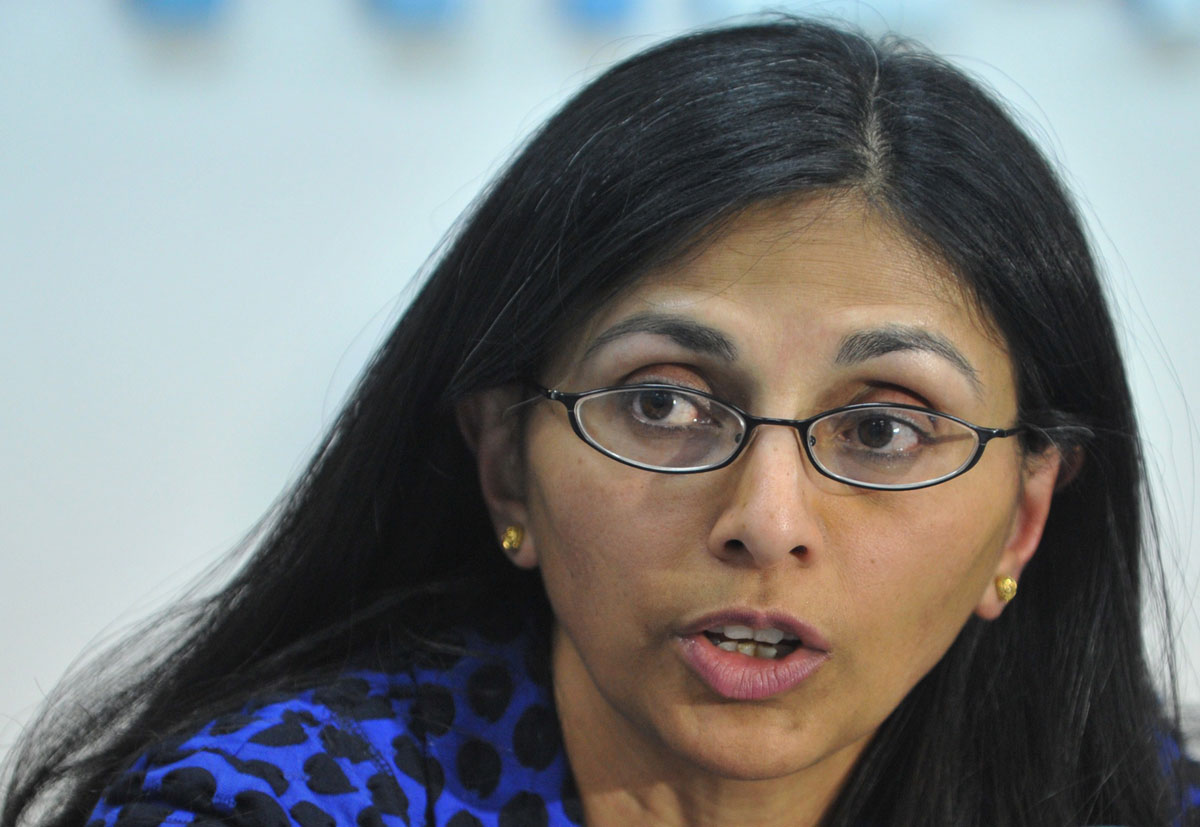OVERCOME CHALLENGES, U.S. TELLS INDIA
File photo of Assistant Secretary of State for South and Central Asian Affairs, Nisha Desai Biswal, speaking at a press conference in the Kyrgyzstan’s capital Bishkek on April 3, 2014. (Vyacheslav Oseledko | AFP | Getty Images)
India needs to overcome “tremendous challenges” like religious, gender and caste-based discrimination along with hurdles in the energy and health sectors to realize the full potential of the Indo-U.S. economic relationship, a top American diplomat said, May 11, writes Lalit K. Jha. (@Siliconeer, #Siliconeer, #USIndiaRelations, #Trade, #narendramodi, @narendramodi, #POTUS, #BarackObama, #NishaDesaiBiswal)
The U.S. wants its trade with India to grow multi-fold and be near the U.S.-China trade, Assistant Secretary of State for South and Central Asia Nisha Desai Biswal told lawmakers during a Congressional hearing.
“U.S. companies have invested nearly $30 billion in India and our bilateral trade has grown by a factor of 5 over the last 15 years, to over $100 billion. As India’s economy and middle class grows, we want to see that number increase another five-fold—about to where our trade with China is today,” Biswal said.
“But for our economic relationship—and for India itself—to realize its full potential, it needs to overcome tremendous challenges in energy, education, health, water and sanitation, as well as religious, gender and caste-based discrimination and violence,” she said in her prepared remarks to the Congressional hearing on South Asia organized by the House Foreign Affairs Committee.
The joint strategic vision enunciated by Indian Prime Minister Narendra Modi and President Barack Obama is aimed at promoting peace and prosperity in the Asia-Pacific and Indian Ocean region, Biswal said.
“Our ties are guided by the Joint Strategic Vision enunciated by President Obama and Prime Minister Modi last year and which is based on the belief that a closer partnership between our two countries—the world’s two largest democracies—is imperative to promoting peace and prosperity in the Asia-Pacific and Indian Ocean region,” she said.
India U.S. diplomatic partnership, she said, has reaches far afield, as reflected in recent dialogues covering cooperation at the UN, and in the Middle East, Africa, and East Asia.
The first annual Strategic and Commercial Dialog, brought together more than a dozen different U.S. agencies to pursue numerous lines of effort.
The U.S.-India-Japan ministerial explored trilateral cooperation in regional and maritime security, economic connectivity and disaster response.
The Foreign Service Institutes now share best practices and conduct exchanges and development professionals are working together to alleviate poverty and fight diseases from Africa to East Asia, she said.
“Our leaders have met together six times in the last couple years, and Speaker (Paul) Ryan’s invitation to Prime Minister Modi to be the first foreign leader to address a Joint Session of Congress this year further underscores the importance that all branches of our government places on this relationship,” Biswal said.


